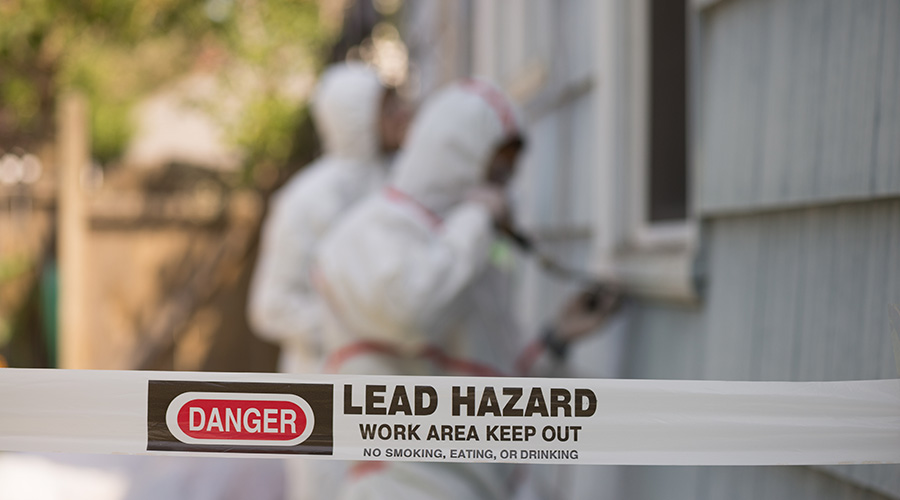Strategies for Finding Skilled Maintenance Technicians
Managers discuss key questions related to locating qualified, experienced front-line technicians.
The staffing challenges facing maintenance and engineering departments are getting tougher. For a decade or more, managers have watched as aging technicians retired from institutional and commercial facilities, and they often have struggled to replace them with younger workers who have the skills and experience to do the work efficiently and effectively.
Then came the COVID-19 pandemic. As with most other professions searching for qualified workers, maintenance and engineering managers have revisited and revised their strategies and tactics for recruiting and hiring technicians.
In the second part of a three-part series, managers discuss key questions related to locating qualified and experienced front-line technicians. The managers are:
Steven Cox, Director of Facilities Operations, Tulsa (Oklahoma) Community College (TCC): "The facilities department has 54 employees, and each campus has one facility manager responsible for daily oversight and management of all facilities related campus activities. Each campus also has one maintenance supervisor who reports to the facility manager and oversees the engineering team. The engineering team at each campus consists of one or two maintenance assistants at each campus, one third-class engineer, and five to seven first class engineers. In total, 31 maintenance engineers reside across the four campuses.”
Gregg Sprowl, Program Manager, Access Controls and Security Systems, University of California, San Francisco: “We have 17 staff supporting the security systems at UCSF, myself as the program manager and two supervisors that are separated between our two main campuses, 13 staff persons that are locksmiths and security technicians, as well as one applications engineer.”
Daniel Schied, Director of Grounds, Cornell University: “We have: 34 grounds staff for grounds maintenance, landscape improvements, and sidewalk and stair snow removal; 11 landscape construction workers to primarily support utilities department in underground digs, landscape repairs, such as sidewalk panels, regrading, earthwork, parking lot and roadway snow removal; three mechanics for maintenance of all equipment, assist in procurement of vehicles and equipment, support roadway snow removal; three managers who each oversee a different aspect of campus; one admin/office manager for all paperwork, purchase orders, time reporting; and one director who oversees operation, new campus projects related to landscape, budgets, and large capital purchases.”
What successful strategies have you used to locate and hire qualified front-line technicians?
Scheid: We have just begun to look outside the immediate area, with statewide and regional postings. Time will tell if this helps.
Cox: In the mid 2010s — when we had numerous first-class engineer openings with few if any candidates applying locally for the reasons all of us experience — we made significant changes both in engineering structure and our hiring process. With regard to our engineering structure, given we are a multi-site institution, we shifted positions around so that each campus had at least one maintenance assistant and one third class engineer. This natural foundational change created a pathway at each campus for an employee to move from maintenance assistant to third-class engineer to first-class engineer, creating more opportunities for employee advancement through the hiring process.
Additionally and significantly, we changed our focus with hiring maintenance assistant/apprentice level employees to hiring for those positions with an eye on the future, looking for maintenance assistants with aspirations, aptitude, and attitude to be first-class engineers who of course can also perform the required duties. During the interview process, the interview committee is up front and shows the candidates via an attractive, marketing level infographic what TCC expects from its maintenance assistant and how we will help them by providing the tools and training to be a third-class engineer in one year, and then again, the tools and training so they can attain first-class engineer level in two more years, allowing them to nearly double their salary in three years. Over 80 percent of our maintenance assistants hired during this timeframe remain with TCC and have become first-class engineers or are on the path to becoming first-class engineers.
Sprowl: Our talent acquisition team has started reaching out further to find good candidates. It used to be that we posted to our own careers page and left it to chance that people would see it. Now we are using other third-party online resources to get the word out. That has helped a lot.
Dan Hounsell is senior editor for the facilities market. He has more than 25 years of experience covering engineering, maintenance, and grounds management issues in institutional and commercial facilities.
Related Topics:














